Whether you just started following my blog or have been at it for years, you know I have a special interest in prenatal nutrition. That means I inevitably get a lot of questions about what I personally ate during pregnancy.
Well, I’m spilling the beans today.
Remember last year when I spoke at Paleo f(x)? My talk, The Carbohydrate & Pregnancy Controversy drew a bigger audience than I expected. And little did I know, Leanne of Healthful Pursuit and her assistant were in the audience taking notes.
Leanne first reached out to me to set up an interview about ketogenic diets and pregnancy this summer, but alas, with a small baby, no childcare, and life being crazy pants, we got delayed. Like… 6 months delayed.
But, you know what? Babies eventually get a little less clingy, eat things other than the milk your body produces (even if they’re still milk monsters), and lo and behold, childcare gets arranged and BAM, things-other-than-babying get done… sometimes. Imagine that?!
It’s with great pleasure that I share with you my interview for The Keto Diet Podcast where we cover a whole host of questions about carbs and pregnancy, like whether a low carb or ketogenic diet are safe in pregnancy, how metabolism shifts during pregnancy (and what that means about carbohydrate needs), Qs and As about ketosis, and some important considerations about going low carb while breastfeeding.
Listen here or on iTunes (The Keto Diet Podcast, Episode 21)
Here are a few highlights from our interview:
- Is low carb right for everyone? How does low carb affect women with infertility or amenorrhea? Should women eat low carb if they’re having trouble getting pregnant?
- How do blood sugar levels affect infertility and rates of miscarriage?
- Are carbs required for pregnancy? Is it safe to stay low carb while pregnant?
- What happens during the first trimester that makes it tough to stick to low carb? Is it ok to cheat more? (psst – I share my personal experience with morning sickness from my pregnancy and the not-super-healthy food that got me through the tough days)
- How does insulin & insulin resistance differ in the first half vs second half of pregnancy and what does that mean when it comes to your diet?
- What to do when: “I just crave carbs every day? I love being ketogenic, and I love being low-carb, but I can’t seem to stick to it while pregnant?!”
- The importance of mindful eating and staying open-minded about food during pregnancy.
- Real talk about why eating healthy before getting pregnant is so, so helpful (beyond just getting enough nutrients to your baby).
- How low-carb can you go in a pregnancy? Is it safe, is it not safe? Do I need carbohydrates to make my baby grow?
- Possible reasons pregnant women often go into ketosis (whether a mom eats low carb or not).
- Why you shouldn’t freak out if you feel “puffy” or “pudgy” in the first trimester. (HINT: there’s a metabolic reason for it!)
- My thoughts on intermittent fasting and pregnancy. “I just heard that ketones are really good for the baby, so should I fast to create even more ketones?”
- Why breastfeeding moms should quit worrying about macronutrients and what to do instead.
- Foods to emphasize while breastfeeding to make sure you’re making enough milk (and nutrient-rich milk).
- What I ate postpartum (with a little more specifics beyond ALL. THE. FOOD.)
As I say in the interview, when I wrote Real Food for Gestational Diabetes (which for those of you who don’t know, is the first book that scientifically defends a lower carbohydrate diet during pregnancy), I was coming at the topic from the stance that whoever was reading was a) diagnosed with gestational diabetes and b) most likely in the second half of their pregnancy. That means the nutrition recommendations, while totally safe and healthy, aren’t always practical when you’re battling first trimester nausea and food aversions. Leanne and I chat about what’s going on in your body in the first half of pregnancy vs. the second half and what that means about how many carbohydrates you need.
HINT: you’re not “weak” or “hurting your baby” if you can’t maintain eating low carb in your first trimester.
WARNING: I share a LOT of #truthbombs in this interview.
If you don’t mind me quoting myself…
I think at the end of the day, we have to do a lot more mindful eating in pregnancy than prescriptive eating.
And this one:
“I feel like pregnancy is such a chance to surrender. It’s a good preparation for motherhood… You have to get less serious about yourself. There’s going to be so much that’s out of your control. All you can do is do the best that you can at the time.”
Aaaaaand this one about why eating healthy BEFORE getting pregnant is SO key:
“You’re probably not going to magically switch to being a vegetable lover while you’re pregnant, nor is there any chance you’re going to want to, or be able to, continue that postpartum when you have zero time to yourself, and zero time to cook. The time to eat healthy is now. Get it in your bones. Learn to make vegetables taste good. Learn to cook, learn to enjoy healthy foods, and then you’ll figure out how to make it work during and after pregnancy.”
Have you listened to our interview yet? Get on it, sistah!
Until next week,
Lily
PS – If you enjoyed our interview, tell me about your favorite “aha moments” in the comments. I certainly hope you can intelligently answer the Q: “Are carbs required for pregnancy?” after tuning in.
PPS – Wanna learn the science behind low-carb and ketogenic diets during pregnancy. Check out my training over on Vimeo, based on my uber popular presentation at Paleo f(x) 2016, The Carbohydrate & Pregnancy Controversy: How Conventional Recommendations Stack Up Against the Evidence.

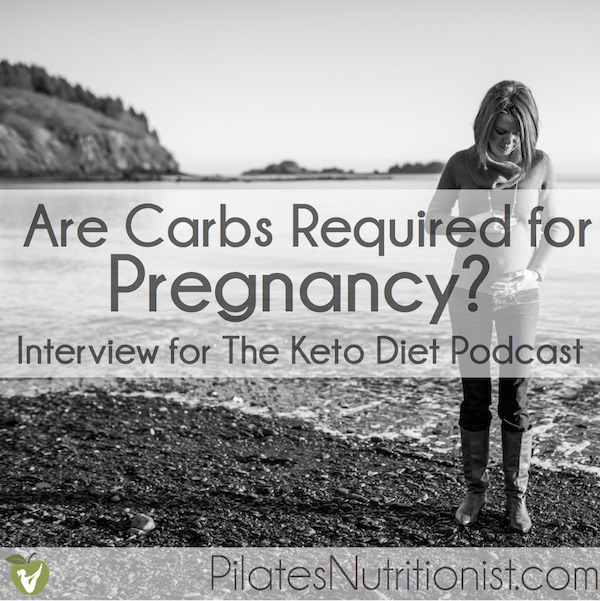

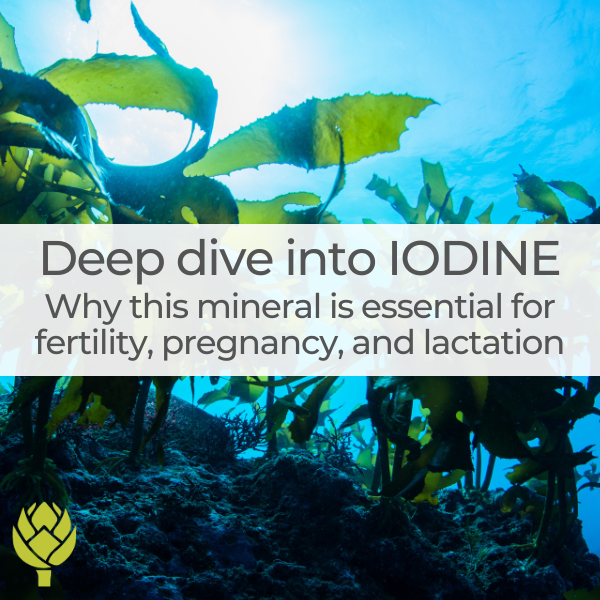
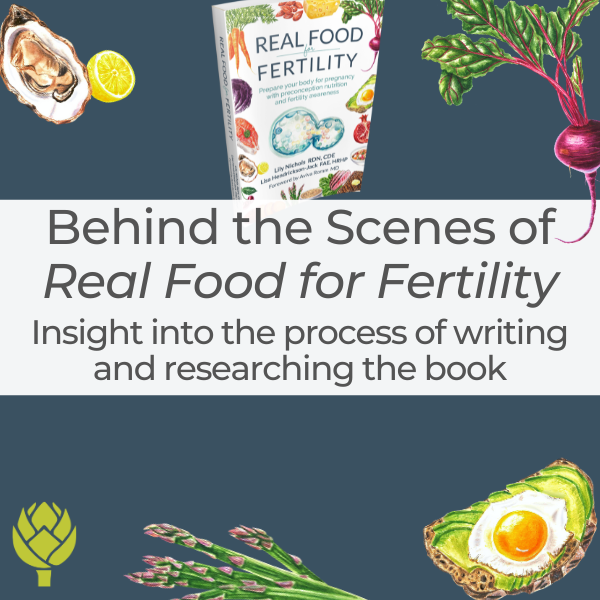
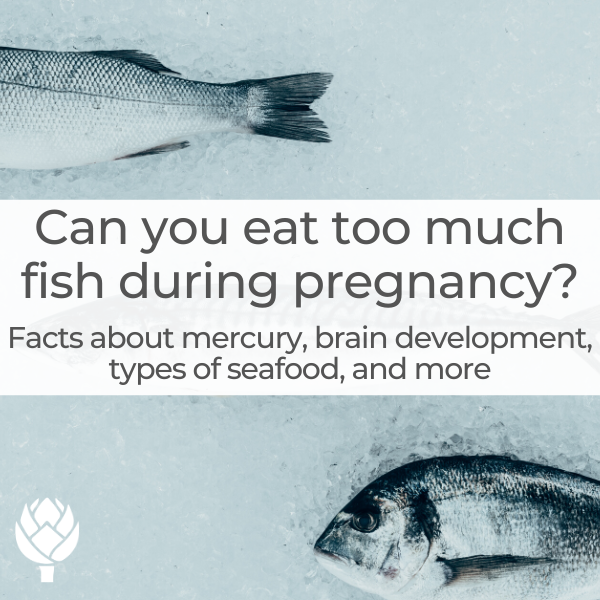
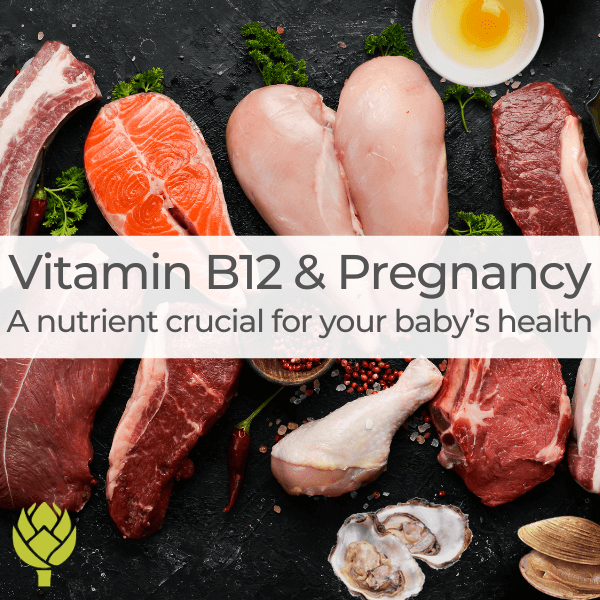



I am desperate for some answers. I switched to Keto to help me become pregnant after four months of trying . I’ve kept my carbs below 20 g. Started the diet 17 days ago after my last period .. I just got my period on day 17, my usual day for ovulation. I’m very defeated. I’ve never in my whole life have had an irregular period. Now I feel like I really screwed my self and my hormones up more. I should mention I am very fit. I lift weights but even turned down volume and intensity this month to help. Do I need more carbs ? What do I do ?
looks like you can get on the waiting list for a consult https://lilynicholsrdn.com/waiting-list/
I’ve been on the keto diet for two months and I should’ve gotten pregnant many months before this based on intercourse during fertile window.
I just found out that I was pregnant yesterday after being on the keto diet by just two months.
The thing is I stopped trying consistently and that’s when it actually happened.
Losing 20 pounds also probably contributed to my situation.
I feel like the keto diet had so much to do with it. Please don’t give up it will happen!
Good luck to you!